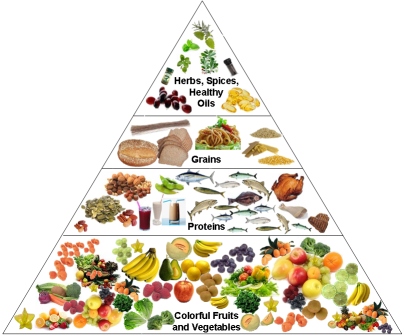Getting Fit: Eating to the Build

Previously, I’ve covered the most recommended beginners programs for weightlifting, and the importance of building a base of strength with those programs. The final building block to completing the base of strength is food.
I’m sure you’ve heard the 80/20 rule with health and fitness. If not, it’s very simple: 80% of your health, physique, and fitness levels is based purely on your diet. The other 20% is what you do in the gym or on the field. Even if you pick the perfect program, and lift your tail off, if your diet is out of order your body will be, as well.
The first step in calculating what to do with your diet is to decide if you need to lose weight — or gain it. Where your body currently stands on the spectrum of body fat levels should dictate where you go with your diet. (An important note: do not worry about BMI. The Body Mass Index is a great tool for measuring obesity levels over large populations, but when used on an individual, it can give extremely skewed pictures of their health. Focus on Body Fat Percentage instead.)
If you are bordering the 16 to 20 percent body fat extreme, you are pushing into the obesity category and your choice is simple: cut weight. If you are in the single digits 5 or 6 to 10 or 11%, your choice is just as easy the other way: bulk or gain weight. The middle, however, gets tricky and is up to the individual. Make a choice; would you rather see yourself move bigger weight in the gym at the expense of looking a bit soft now (bulking)? Or, would you rather like to look slim and trim, at the expense of moving smaller numbers in the gym (cutting)? Each person will have a different answer to those questions.
Depending on your goals, you simply add 500 calories over or under your Maintenance calories. The last and most important step is to eat at your calorie goals.
A few meaningful factors to consider. Protein is important no matter what you’re attempting to accomplish with your body. Muscle is built and maintained on protein intake. If you want to gain muscle, or keep what you have, you should be eating 0.8 to 1 gram of protein for every pound of body weight.
Carbs are also important, as they’re your body’s main energy source. These are the first things people cut out of their diet when attempting to lose weight, and it can work for some — but if you’re in the gym four days a week, throwing iron around, you are going to need some energy. Keep most of your carbs.
Which leaves fats and fibers. Again, all important. Fiber especially for the increased protein intake.
When losing weight, it is best to cut small amounts of all four of the main nutrients, as opposed to the majority of just one.
Image: By Spmallare (Own work) [CC-BY-3.0 (http://creativecommons.org/licenses/by/3.0)], via Wikimedia Commons
Support Metro Weekly’s Journalism
These are challenging times for news organizations. And yet it’s crucial we stay active and provide vital resources and information to both our local readers and the world. So won’t you please take a moment and consider supporting Metro Weekly with a membership? For as little as $5 a month, you can help ensure Metro Weekly magazine and MetroWeekly.com remain free, viable resources as we provide the best, most diverse, culturally-resonant LGBTQ coverage in both the D.C. region and around the world. Memberships come with exclusive perks and discounts, your own personal digital delivery of each week’s magazine (and an archive), access to our Member's Lounge when it launches this fall, and exclusive members-only items like Metro Weekly Membership Mugs and Tote Bags! Check out all our membership levels here and please join us today!



















